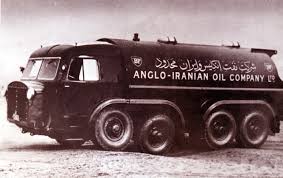🛢️ Britain’s Investment in Persian Oil: A Strategic Gamble That Changed History
As the storm clouds of World War I gathered, the British Empire made a bold move that would reshape the future of warfare, energy, and global politics: Britain investment in Persian oil. It wasn’t just a financial decision—it was a strategic revolution. For centuries, Britain’s power had been built on coal, but coal was bulky, slow to load, and rapidly losing pace with the demands of mechanized warfare. The Admiralty, under the sharp eye of Winston Churchill, realized that the future of naval dominance lay not in coal bunkers—but in crude oil.
To ensure its warships would never be stranded for lack of fuel, Britain turned to the vast, untapped oil fields of Persia. And with that decision, it became the first major power to fuse military security with energy policy on a global scale.

🔥 From a Desert Gamble to an Imperial Asset
The journey to Persian oil began years earlier with William Knox D’Arcy, a British speculator who, in 1901, secured exclusive oil rights from the Persian government. After years of frustration and near financial ruin, D’Arcy’s team struck oil in 1908, creating the foundation for what would become the Anglo-Persian Oil Company (APOC).
Just six years later, in 1914, Churchill convinced Parliament to buy a 51% stake in APOC—transforming the company from a private venture into a quasi-state oil arm of the British Empire. This act was more than a financial maneuver; it was a strategic doctrine. Britain was no longer simply protecting trade—it was investing in energy dominance.
⚓ Fueling the Royal Navy
With war on the horizon, APOC’s oil was swiftly directed into British naval strategy. The conversion of the Royal Navy from coal to oil, led by Churchill, gave Britain’s fleet unmatched speed and maneuverability. Oil could be pumped rather than shoveled, stored more efficiently, and burned cleaner. It allowed ships to travel farther without refueling and freed up space and manpower for combat operations.
Oil from Persia flowed to the Abadan refinery, one of the largest of its time, and from there to the arteries of Britain’s global fleet. It was the industrial bloodstream of an empire at war.
🌍 Oil, Empire, and the Beginning of a New Game
Britain’s investment in Persian oil set a precedent that would echo across the century. Other empires watched and learned. Oil was no longer just about lighting lamps or running machines—it was now about strategic leverage, imperial survival, and post-war positioning.
APOC would become a key player in the Middle East, entangling Britain in Persian—and later Iranian—politics for generations. The company’s legacy would eventually evolve into British Petroleum (BP), but its roots lay in that fateful decision to bet on oil before the first shots of the Great War were even fired.
🧭 Legacy of Control
By investing in APOC, Britain had secured more than a fuel supply. It had secured a strategic foothold in the future of warfare. When the U.S. entered the war in 1917 with its own rich oil reserves, it became clear: oil would define the new century—not just economically, but geopolitically.
Britain’s investment in Persian oil wasn’t just a turning point for one empire—it was a turning point for the modern world.
